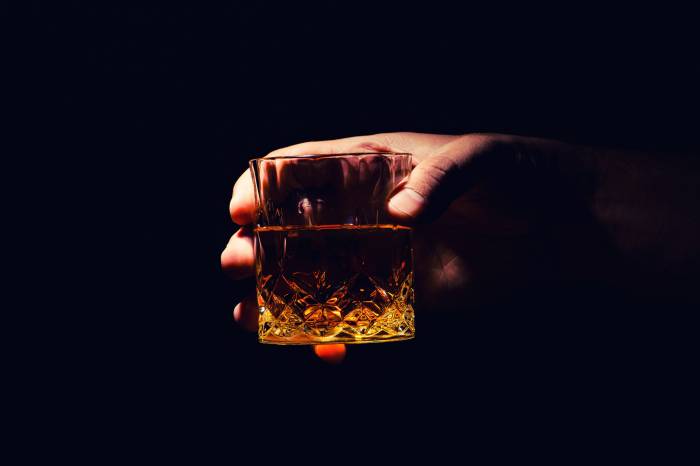Whisky Industry Faces Global Slowdown as Smaller Producers Struggle to Compete
Economic uncertainty and shifting consumer habits force distilleries to rethink strategies and emphasize regional identity amid falling demand
2025-09-17

Whisky producers around the world are facing a challenging period as global demand for spirits slows, forcing both established and emerging brands to rethink their strategies. The slowdown has hit smaller producers especially hard, as they work to gain recognition in a market that is no longer expanding at the pace seen in previous years.
Industry experts point to a range of factors behind the downturn, including economic uncertainty, shifting consumer habits, and increased competition. Dave Broom, author of The World Atlas of Whisky, notes that for the first time in years, whisky sales have stopped growing. This has left many brands, particularly those from countries with less established whisky traditions, in a vulnerable position.
In March, Diageo announced it would stop bringing new brands into its Distill Ventures accelerator program. Since its founding in 2013, Distill Ventures has supported brands like Starward from Australia, Stauning from Denmark, and Fielden from England. Diageo’s decision was followed by Stauning’s announcement that it would cut about 25% of its workforce and scale back its presence in the United States. Alex Munch, co-founder of Stauning, said the company would slow its expansion in the U.S. market.
Layoffs and production pauses are becoming more common across the industry as companies adjust to lower demand. Investors are also becoming more cautious, calling in debts and prompting some distilleries to reassess their growth plans. Despite these setbacks, Stauning marked its 20th anniversary in July with a new bottle design.
The challenges faced by Stauning highlight a broader issue for world whisky producers: competing against larger, established firms without the same resources or market share. Dave Schmier, president of Proof and Wood Ventures, says that while there is growing interest among consumers to explore whiskies from around the world, simply being new is no longer enough to guarantee success.
To strengthen their position, some distillers are working together to define regional standards for their products. In April, ten Danish distillers launched the Danish Whisky Manifesto to set rules for their category. Similarly, the English Whisky Guild applied for a geographical indication (GI) for English whisky in February. These efforts aim to help retailers and consumers understand what makes each country’s whisky unique.
Jenni Ashwood, marketing director at Spirit of Yorkshire Distillery—which produces Filey Bay single malts—believes that having clear definitions helps both creativity and consumer understanding. She points out that an English single malt will differ from Scottish or American versions due to differences in production methods and local conditions.
Despite resistance from some quarters—such as the Scotch Whisky Association’s opposition to an English GI—producers remain committed to building recognition for their regional styles. Ashwood says that focusing on local markets has helped her brand find success even as traditional whisky markets become more difficult.
Broom suggests that world whisky brands may need to look beyond major markets like the U.S., where competition is fierce and consumer confidence is low. He points to opportunities in African countries such as Nigeria and Kenya, where whisky still holds strong appeal. Price is also a key factor; Broom believes that well-priced mainstream whiskies are performing better than high-end offerings during this period of recalibration.
He advises producers to continue making as much whisky as they can afford and to learn from past shortages experienced by Scotch and Japanese distilleries. Building strong partnerships with distributors who understand the long-term nature of the business is also crucial.
Producers like Kavalan in Taiwan are adapting by offering a range of products—from ready-to-drink highball cans to limited-edition single malts—and working closely with local partners to introduce their whiskies authentically in new markets. Britney Chen, regional brand ambassador for Kavalan, says that staying close to consumers and offering accessible formats helps keep the brand relevant.
Ryan McFarland of Drinksology Kirker Greer highlights countries like Australia, India, and Taiwan as examples of places where innovative producers are gaining global attention by combining local climate advantages with strong storytelling. He notes that newer producers often have an edge because they can be more flexible and less constrained by legacy systems.
McFarland advises world whisky brands to focus on their home markets first, build genuine partnerships, and maintain their identity even when resources are tight. He emphasizes that agility means adapting to meet consumers’ changing tastes without losing sight of what makes each brand unique.
As global whisky producers navigate this period of uncertainty, many are betting that a renewed focus on regional identity and collaboration will help them weather the storm—and perhaps even emerge stronger when growth returns.
Founded in 2007, Vinetur® is a registered trademark of VGSC S.L. with a long history in the wine industry.
VGSC, S.L. with VAT number B70255591 is a spanish company legally registered in the Commercial Register of the city of Santiago de Compostela, with registration number: Bulletin 181, Reference 356049 in Volume 13, Page 107, Section 6, Sheet 45028, Entry 2.
Email: [email protected]
Headquarters and offices located in Vilagarcia de Arousa, Spain.